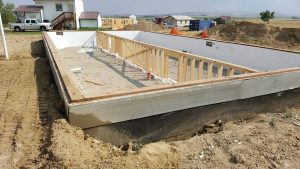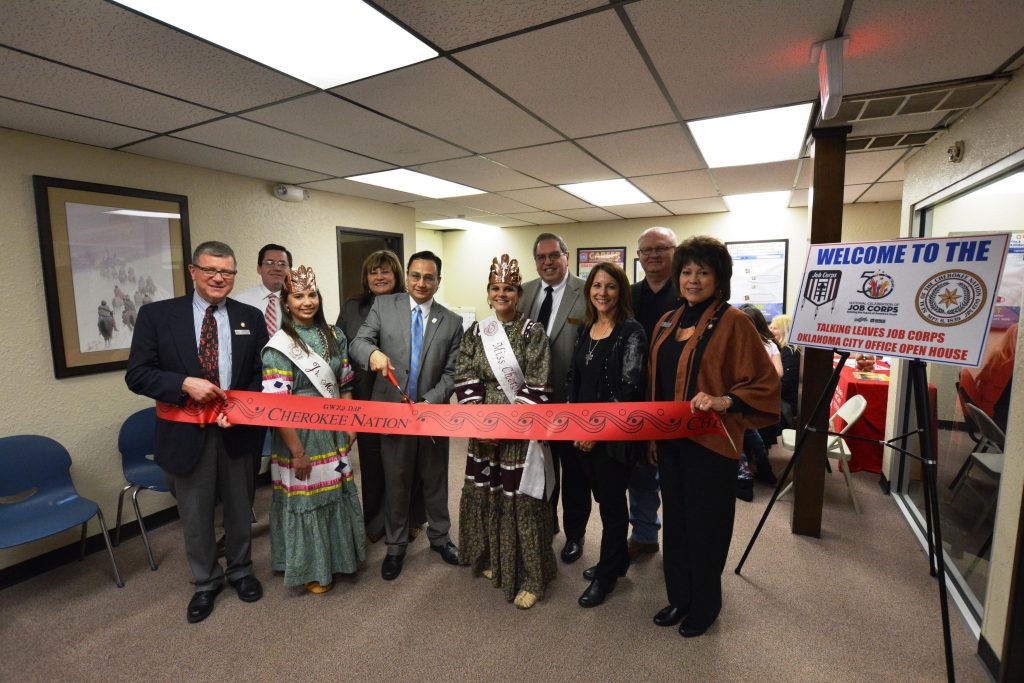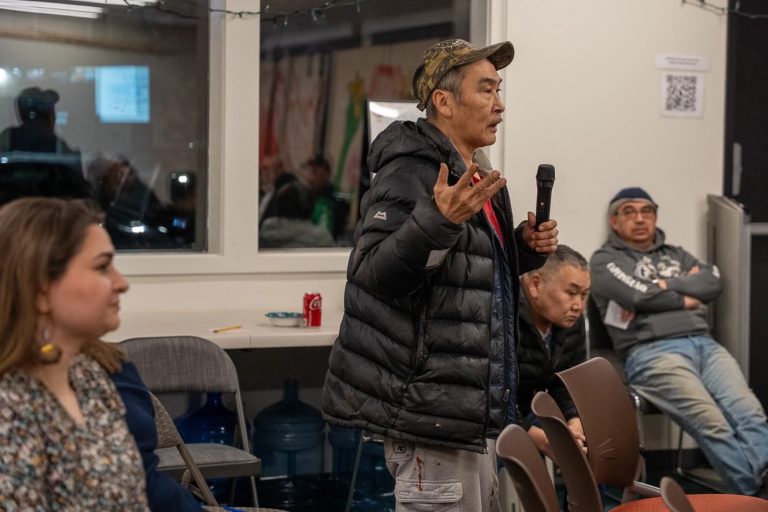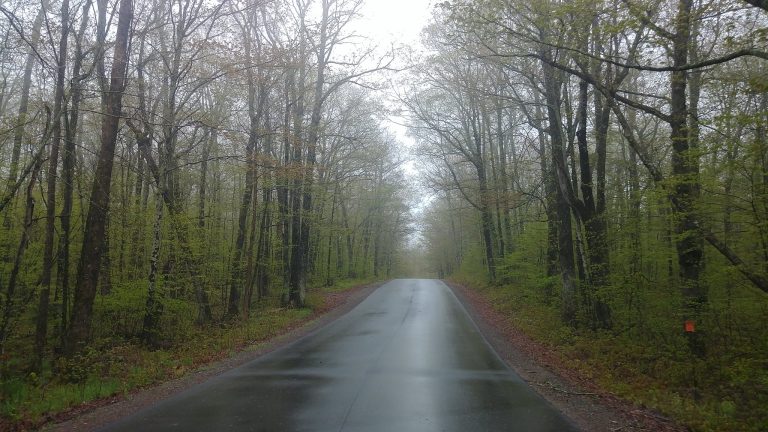Podcast: Play in new window | Download | Embed
Photo: Cherokee Nation leaders and ambassadors and Talking Leaves Job Corps staff hosting open house at new Taling Leaves Job Corps Oklahoma City office in 2016. (Courtesy Cherokee Nation / Facebook)
A federal judge Wednesday halted the closure of Job Corps locations across the country.
In May, the federal government announced it was pausing the Job Corps program, which helps people ages 16 through 24 with career training.
The Associated Press reports, a lawsuit is challenging that move, and the court ordered the government to keep the program running until the lawsuit is resolved.
The Cherokee Nation in Oklahoma, raised concerns about the closures saying it was the first tribe to operate a Job Corps in 1978, and the program was serving around 150 students.

A view of the Trinity River from the GeO-Deck of Reunion Tower in Dallas, Texas. (Photo: Michael Barera / Wikimedia)
In Texas, the city of Dallas plans to rename three man-made lakes along the Trinity River in honor of tribes.
KERA News reports the city council voted Wednesday to name them Three Sisters Lakes with each lake named after a tribe that has ties to the state.

(Courtesy Denver Indian Center / Facebook)
American Indian and Alaska Native communities in Colorado continue to face significant gaps in health care access, quality, and outcomes, according to a new analysis of the Colorado All Payer Claims Database.
Eric Galatas reports.
While the communities face higher rates of many chronic conditions, they are also not getting important preventive care.
David Wright, data manager at the Denver Indian Center, said fear remains a primary barrier, pointing to decades of mistreatment, including the forced sterilization of women and federal policies forcing medicine men and other spiritual leaders into mental asylums up until 1978.
“Native people, for a long time, have been used to advance medical research without their consent. And so there’s a large mistrust within the Native communities against the medical profession.”
Between 2018 and 2024, American Indian and Alaska Native people were diagnosed with kidney disease, autoimmune, nervous, metabolic, and endocrine disorders such as diabetes at rates far above their white peers.
Wright noted the analysis, produced in partnership with the Center for Improving Value in Health Care, will be used to create a culturally tailored education program for health providers.
Without additional training, Wright pointed out health professionals are likely to continue to assume chronic conditions are due to an individual’s dietary choices.
Many do not understand for more than 100 years, tribes had to rely on government rations, typically high in carbohydrates and salt, to get enough calories.
“Because of the forced relocation and the reservation systems, and relying on heavily carbohydrate related rations.”
Poverty, lack of affordable housing and the breakdown of family systems also disproportionately affect health outcomes.
Wright argued better health will require treating the whole person, not just specific medical conditions.
When people are out of balance in any one area, he stressed there are ripple effects.
“If we’re not able to provide stable housing — which is not only of mental and emotional and physical importance — but it also will affect the outcomes and the teachings and the role modeling you need for your children and your family structures.”

(Courtesy Northern Arapaho Tribal Housing)
The Eastern Shoshone and Northern Arapaho Tribes recently received grants from the U.S. Department of Housing and Urban Development.
But as Wyoming Public Radio’s Hannah Habermann reports, other housing-related funding for the tribes is a little less certain.
Tribes around the country receive federal support through the annual Indian Housing Block Grant.
This year, the Eastern Shoshone Tribe got about 2.3 million, and the Northern Arapaho Tribe received about 3.6 million.
Emery’l LeBeau is the director of the Northern Arapaho Housing Authority.
“We get this Block grant based on a formula, right? And so it’s based off the units and our need.”
The money keeps housing authorities operating and helps maintain their current housing.
President Donald Trump’s proposed budget would decrease that funding by about 20%.
An earlier draft also called for eliminating a competitive community development grant.
Gilbert Riche is with the Eastern Shoshone Housing Authority and says losing that would have a direct impact on future projects.
“ That’s the primary funding source for us to spearhead new housing development.”
Get National Native News delivered to your inbox daily. Sign up for our daily newsletter today.



